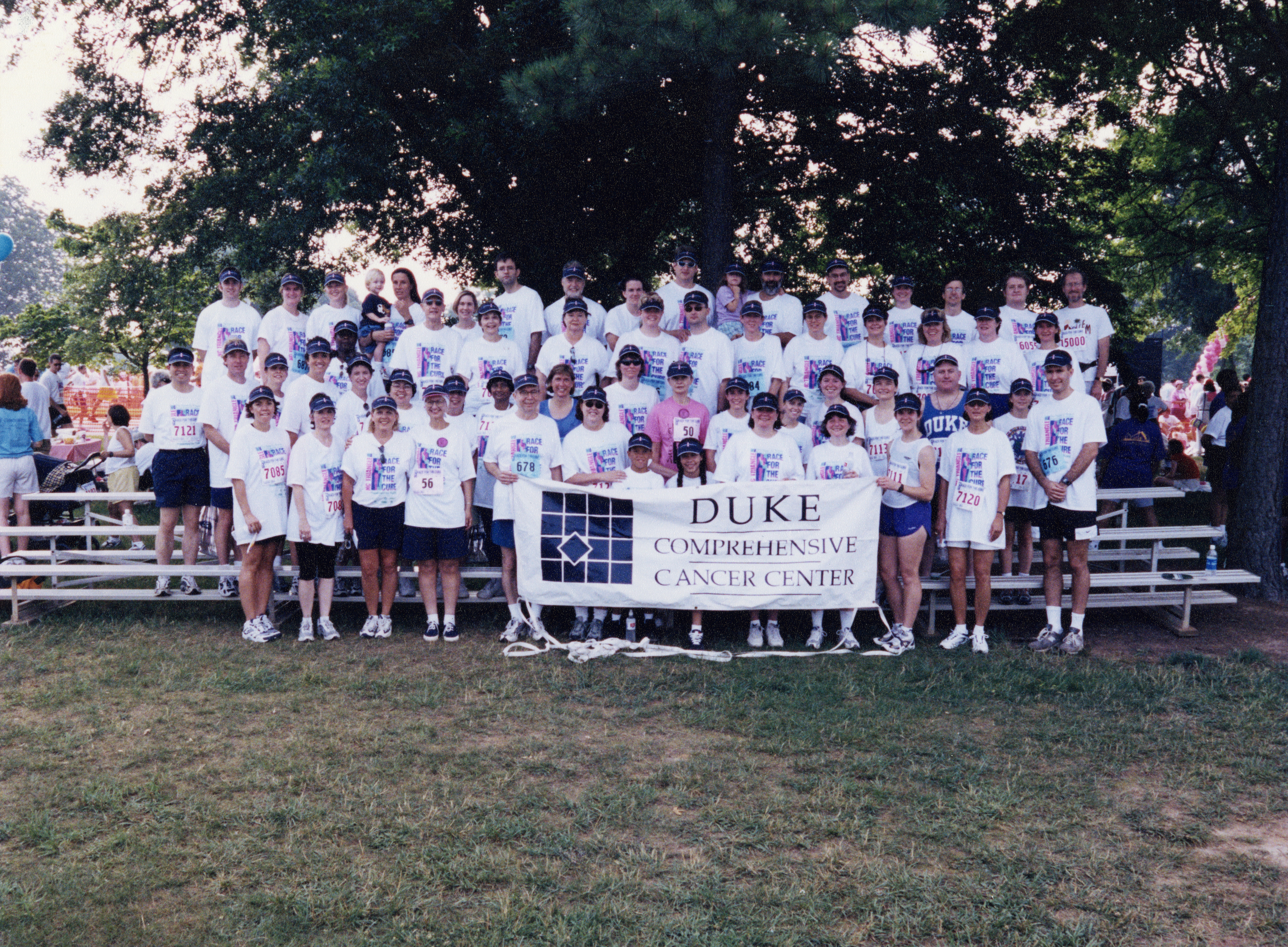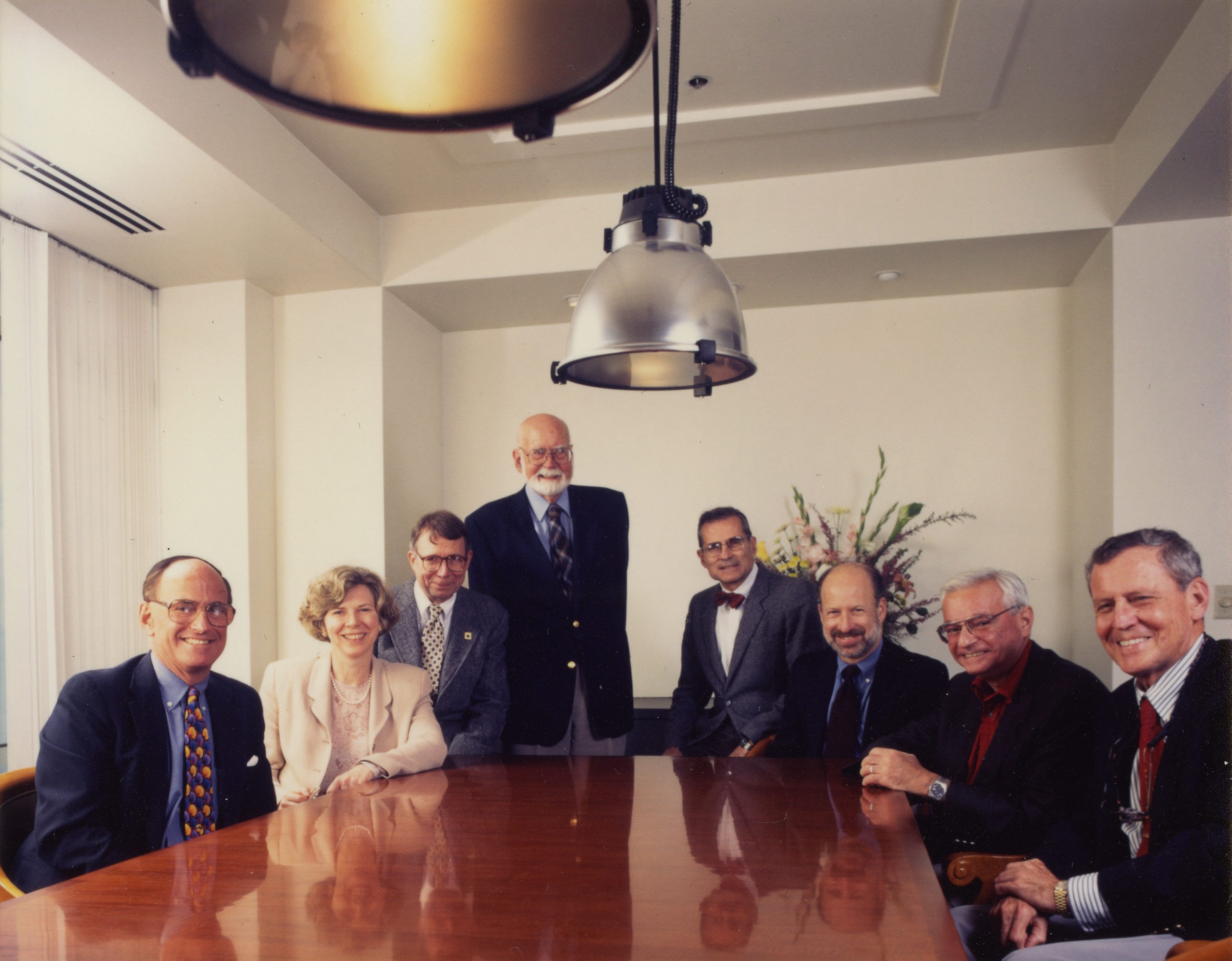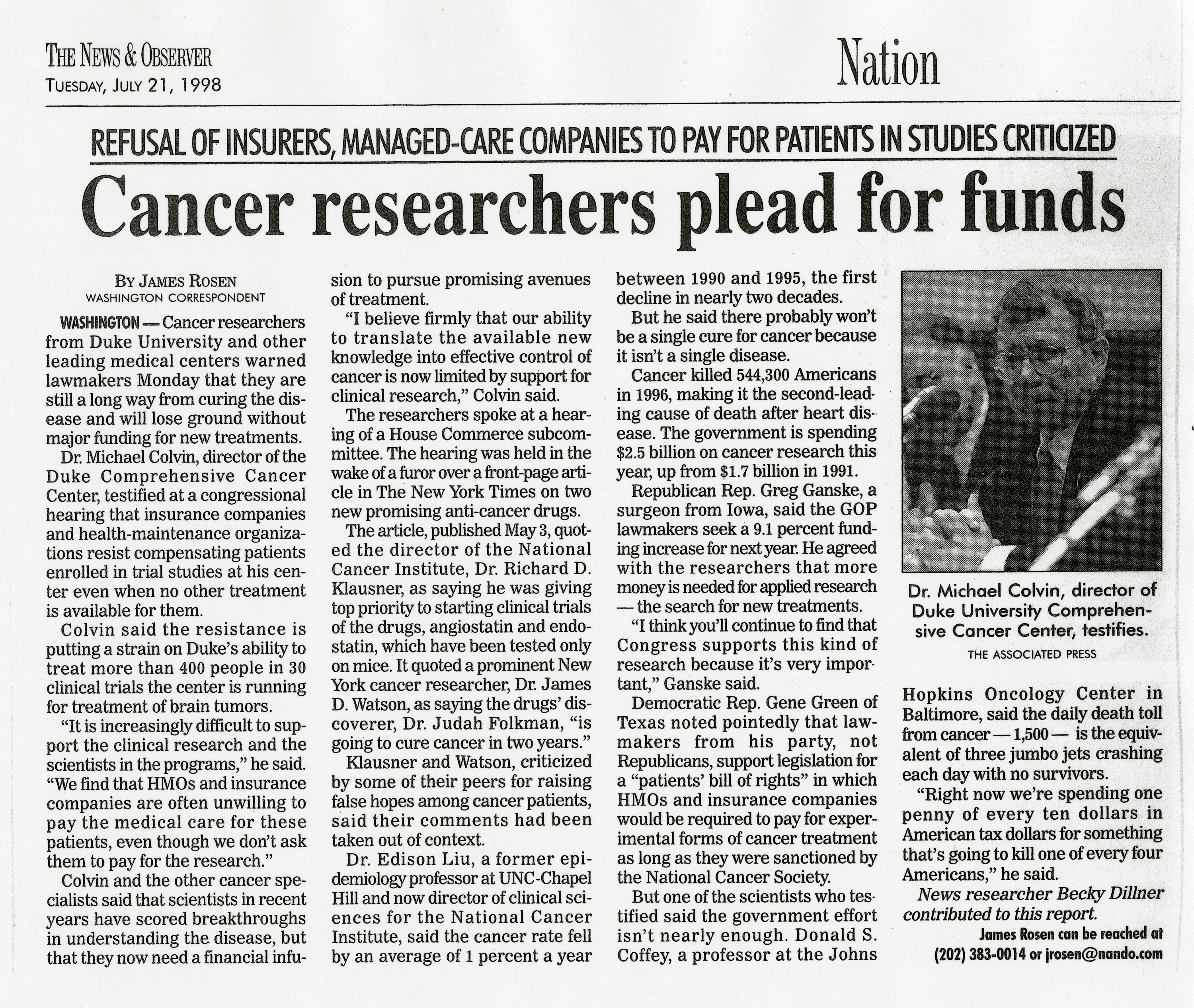This is the third blog post in a three-part series exploring the life and career of Dr. O. Michael Colvin (1936-2013), renowned oncologist and educator, who served as Director of the Duke Comprehensive Cancer Center from 1995 to 2002. This blog post highlights Colvin’s dedication to his patients at the Duke Comprehensive Cancer Center.
The first blog post introduces Colvin and his work.
The second blog post discusses the impact of the National Cancer Act of 1971 on the Duke Comprehensive Cancer Center and on Colvin’s career.
“While some may believe that humans are frail creatures who give up in the presence of adversity, I have seen the opposite in my years with cancer patients. In the most difficult circumstances, they display incredible strength, courage and spirit.” – Dr. O. Michael Colvin 
In 1994, the second director of the Duke Comprehensive Cancer Center (DCCC), Dr. Robert C. Bast, Jr., left Duke, and the DCCC began its search for a new director. After a nine-month national search, the DCCC selected Colvin because of his experience with program-building and interdisciplinary collaboration. Colvin served as the third director of the DCCC (1995-2002). In his introduction about the DCCC in its publication “People Worth Knowing, People Worth Helping,” Colvin explained that he was personally drawn to the DCCC due to its “intimacy with patients unlike that at any other leading cancer center.” Throughout his Duke career, colleagues admired Colvin’s prioritization of DCCC patient experiences and wellbeing.
Colvin represented his patients on the national and international stage. In 1998, he testified in front of Congress on behalf of patients at the DCCC, highlighting the refusal of many medical insurance companies to cover cancer research treatments. He implored Congress to increase governmental funding to assist cancer centers’ ability to help patients. In 2000, he attended the World Summit Against Cancer in partnership with UNSECO, where, representing the DCCC, he signed the Paris Charter Against Cancer alongside other renowned oncologists.
Colvin received many honors for his research and administrative work, but he also was recognized for his time spent supporting patient holistic wellbeing. In 2004, he and his wife, Arline Macey (Lockerbie) Colvin, received the Light of Hope Award for their service on the Duke Caring House board and the Duke Cancer Patient Support Program advisory board. The Duke Caring House provides housing and on-site wellbeing programs for Duke cancer patients and their caregivers. The Duke Cancer Patient Support Program expands the “comprehensive” nature of Duke cancer treatment to include self-image, survivorship, recreation, psychological and spiritual programming.
The O. Michael Colvin Papers contains correspondence, research notes, writings, photographs, awards, and digital files representing Colvin’s personal life and professional work. To view materials from the O. Michael Colvin papers, contact the Medical Center Archives staff.atr
This blog post was contributed by Medical Center Archives Intern Emma Eubank.
References:
“Cancer Support Services,” Duke Health, https://www.dukehealth.org/treatments/cancer/cancer-support-services&nb…;
“Who We Are,” Caring House, https://caringhouse.org/who-we-are

